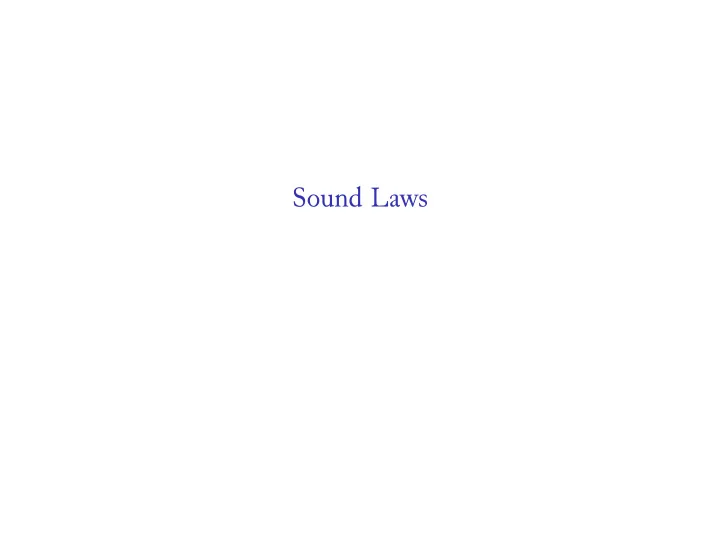

Sound Laws
Assimilation ingest imbibe < mann-r maðr skipta, skipti dœma, dœmði eyða, eyddi brosa, brosti Principle of least effort
ingest < mann-r maðr skipta, skipti dœma, dœmði eyða, eyddi brosa, brosti Principle of least effort ↓ Assimilation imbibe
< mann-r maðr skipta, skipti dœma, dœmði eyða, eyddi brosa, brosti Principle of least effort ↓ Assimilation ingest imbibe
< mann-r skipta, skipti dœma, dœmði eyða, eyddi brosa, brosti Principle of least effort ↓ Assimilation ingest imbibe maðr
skipta, skipti dœma, dœmði eyða, eyddi brosa, brosti Principle of least effort ↓ Assimilation ingest imbibe < mann-r maðr
Principle of least effort ↓ Assimilation ingest imbibe < mann-r maðr skipta, skipti dœma, dœmði eyða, eyddi brosa, brosti
Syncope Ultimate *hǫndu (nom. sg. fem.) > hǫnd *bǫrnu (nom./acc. pl. neut.) > bǫrn *dvelir (class 1 short, 2/3sg.) > dvelr → Unstressed vowels in final syllables are widely dropped Penultimate adj. sg. pl. noun sg. pl. nom. auðigr auðgir nom. himinn himnar acc. auðgan auðga acc. himin himna gen. auðigs auðigra gen. himins himna dat. auðgum auðgum dat. himni himnum → Short, unstressed medial vowels are dropped where followed by CV
Front Mutation ich fahre ich stoße ich laufe du fährst du stößt du läufst sie fährt sie stößt sie läufu
Front Mutation ich fahre ich stoße ich laufe du fährst du stößt du läufst sie fährt sie stößt sie läufu Gothic faran ON fara ik fara ek fer þu faris þú ferr is fariþ hon ferr Ultimate syncope caused i to disappear in many such positions.
Front Mutation in Strong Verbs Figure: fara VI “go, travel” ▶ Front mutation in all singular present indicative forms ▶ Front mutation in the preterite subjunctive (this goes for all verbs except class 2 weak)
Stem Length ̅ (i.e. a long vowel) Short A monosyllabic stem ending in VC or V Long Any other combination NB Thematic vowels and stem augments j/v are not counted to- wards stem length, while geminate gg counts as a single con- sonant. Diphthongs count as long vowels. Short kveðja, hyggja, leggja, selja, spyrja, telja, verja, þekja, æja Long blœða, brenna, dreyma, elda, fzlgja, hlífa, kyssa, sigla, þykkja NB byggja (older form byggva ) is a long stem; hyggja (fsom *hugja ) counts as short!
Front Mutation in Short Stems of Class 1 Weak Figure: berja 1 short “strike, beat” ▶ This class had a thematic i/j , yielding mutated forms everywhere except in the preterite indicative and past participle
Front Mutation in Long Stems of Class 1 Weak Figure: brenna 1 long “burn” (transitive) ▶ With long stems, this class underwent fsont mutation throughout the paradigm
No Front Mutation in Class 2 Weak Figure: tala 2 “speak” ▶ No fsont mutation anywhere in the paradigm ▶ Not even in the preterite subjunctive or pres. ind. singular
Front Mutation in Class 3 Weak Figure: trua 3 “believe” ▶ Only the preterite subjunctive shows i -mutation ▶ The thematic vowel was historically e
A u is still visible in nearly all dative plural forms and in masculine/neuter dative singular adjectives. Nom. sg. langr harmr Nom. pl. langir harmar Acc. sg. langan harm Acc. pl. langa harma Gen. sg. langs harms Gen. pl. langra harma Dat. sg. lǫngum harmi Dat. pl. lǫngum hǫrmum Labial Mutation *handu (nom. sg.) > *hǫndu > hǫnd “hand” *barnu (nom./acc. pl.) > *bǫrnu > bǫrn “children” *vallur (nom. sg.) > *vǫllur > vǫllr “plain”
Labial Mutation *handu (nom. sg.) > *hǫndu > hǫnd “hand” *barnu (nom./acc. pl.) > *bǫrnu > bǫrn “children” *vallur (nom. sg.) > *vǫllur > vǫllr “plain” A u is still visible in nearly all dative plural forms and in masculine/neuter dative singular adjectives. Nom. sg. langr harmr Nom. pl. langir harmar Acc. sg. langan harm Acc. pl. langa harma Gen. sg. langs harms Gen. pl. langra harma Dat. sg. lǫngum harmi Dat. pl. lǫngum hǫrmum
Labial Mutation in Unstressed Syllables The vowel system in unstressed syllables was reduced to i , a , u . ǫ surfaces as u : ▶ hann elskaði, þeir elskuðu ▶ *elskaðu > *elskǫðu > elskuðu ▶ hon kallaði, þær kǫlluðu ▶ *kallaðu > *kallǫðu > *kalluðu > kǫlluðu
Final Devoicing and Regressive Assimilation Old Norse West Germanic fekk fing gekk ging sprakk sprang stakk stung batt bound vatt wound
Loss of w ▶ PN *w was lost before a non-open rounded back vowel or its fsonted counterpart ▶ PN *w was lost in initial position if followed by r Old Norse West Germanic úlfs wolf, Wolf ormr worm, Wurm Óðinn Wodan, Wotan óx wuchs ríða writhe ▶ vaxa VI “grow” : óx , œxi ▶ svelga III “swallow” : sólginn ▶ þvá VI “wash” : þó , þœgi ▶ svella III “swell” : sollinn ▶ valda (mixed) “wield” : olli , ▶ vella III “boil” : ollinn ylli
Sharpening ▶ Vˢᵗʳᵉˢˢᵉᵈww → Vˢᵗʳᵉˢˢᵉᵈggv ▶ Vˢᵗʳᵉˢˢᵉᵈww → Vˢᵗʳᵉˢˢᵉᵈggj Old Norse West Germanic byggja, byggva bauen hryggva, hryggja rue, reuen hǫggva hew, hauen tyggva, tyggja chew, kauen
Recommend
More recommend